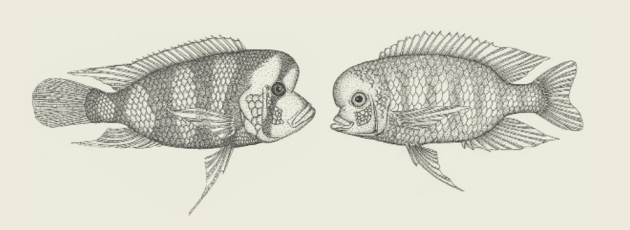 The evolution revolution makes Nature:
The evolution revolution makes Nature:
- Does evolutionary theory need a rethink? by Kevin Laland,
Tobias Uller,
Marc Feldman,
Kim Sterelny,
Gerd B. Müller,
Armin Moczek,
Eva Jablonka,
John Odling-Smee,
Gregory A. Wray,
Hopi E. Hoekstra,
Douglas J. Futuyma,
Richard E. Lenski,
Trudy F. C. Mackay,
Dolph Schluter
& Joan E. Strassmann.
In our view, this ‘gene-centric’ focus fails to capture the full gamut of processes that direct evolution. Missing pieces include how physical development influences the generation of variation (developmental bias); how the environment directly shapes organisms’ traits (plasticity); how organisms modify environments (niche construction); and how organisms transmit more than genes across generations (extra-genetic inheritance).Their main points seem to be:
- S.E.T. (Standard Evolutionary Theory) neglects development. Meh. Not really. I don't see any especially interesting revolution here.
- There is more to inheritance than genes. Meh. Only if you define "genes" as being bits of DNA. However, genes are not bits of DNA. Genes are the units of genetics, and genetics is the study of heredity. Informational genetics neatly covers DNA, memes, environmental inheritance, and works fine as a basis for Darwinsm. If you define "gene" in this way (which you should!) "the idea there is more to inheritance than genes" is wrong. Genes are the units of heredity - by definition. If you use the "molecular biology" definition of "gene" then yes: a big revolution is needed. You need to replace genetics with whole new science. However, "genes" and "genetics" will do just fine as foundational concepts - if you understand these ideas correctly.
I think this expansion of the domain of Darwinism constitutes a revolution. I - and many others - have described it as a paradigm shift. It seems to obviously qualify as a revolution - because of the enormous number of players who so obviously don't grasp it. I think it is fairly clear that the naysayers in this paper haven't grasped the nature of this revolution. For example, they say:
Likewise, there is little evidence for the role of inherited epigenetic modification (part of what was termed ‘inclusive inheritance’) in adaptation: we know of no case in which a new trait has been shown to have a strictly epigenetic basis divorced from gene sequence.
That's an odd thing to say. Of course there are many cases where new traits are divorced from DNA sequences! Practically any culturally-transmitted trait fits the bill. Tattoos, piercings and surnames seem pretty "divorced from gene sequences" to me. What are these biologists thinking about? From their comments it seems clear that they just don't understand. They are on the wrong side of the paradigm shift.
They also question the "traits before genes" model, saying:
Much less clear is whether plasticity can ‘lead’ genetic variation during adaptation. More than half a century ago, developmental biologist Conrad Waddington described a process that he called genetic assimilation. Here, new mutations can sometimes convert a plastic trait into one that develops even without the specific environmental condition that originally induced it. Few cases have been documented outside of the laboratory, however. Whether this is owing to a lack of serious attention or whether it reflects a genuine rarity in nature can be answered only by further study.Hang on: this is a well-known phenomenon. Our ancestors drank milk before they had lactase genes. They walked before they had locking knee joints. They threw rocks before they could aim them well. They used baby slings before their babies were so big and helpless. They swam before they had lost their fur - and so on. "Further study" - pffft: that's what these authors need to do.
As for going beyond the gene - the most popular attempt to replace the "gene" and "genetics" terminology stemmed from the work of Richard Dawkins. He proposed that DNA genes were a special case of an entity he described as being a "replicator" - an attempt to shift away from "gene" and "genetics" and into a more abstract, information-theoretic space. This was a sensible idea - but the terminology and execution were flawed. I've watched this proposed revolution in terminology trundle along over the decades - and eventually I rejected it. We have a science of heredity - genetics - and we don't need another one. We have a unit of heredity - the gene - and we don't need another one. Cultural inheritance can be encompassed within a generalised science of genetics.
The proposed "replicator" revolution hasn't gone especially well - for various reasons. It is still chugging along in some quarters. I don't foresee an especially favourable endgame for it.
Blogosphere commentary: Razib Khan | Larry Moran | Philip Ball | Reddit | Jarry Coyne










No comments:
Post a Comment